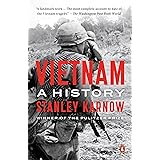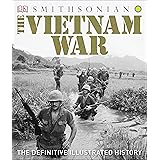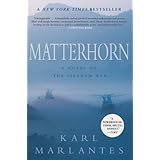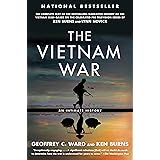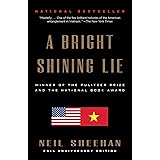
Enjoy fast, free delivery, exclusive deals, and award-winning movies & TV shows with Prime
Try Prime
and start saving today with fast, free delivery
Amazon Prime includes:
Fast, FREE Delivery is available to Prime members. To join, select "Try Amazon Prime and start saving today with Fast, FREE Delivery" below the Add to Cart button.
Amazon Prime members enjoy:- Cardmembers earn 5% Back at Amazon.com with a Prime Credit Card.
- Unlimited Free Two-Day Delivery
- Streaming of thousands of movies and TV shows with limited ads on Prime Video.
- A Kindle book to borrow for free each month - with no due dates
- Listen to over 2 million songs and hundreds of playlists
- Unlimited photo storage with anywhere access
Important: Your credit card will NOT be charged when you start your free trial or if you cancel during the trial period. If you're happy with Amazon Prime, do nothing. At the end of the free trial, your membership will automatically upgrade to a monthly membership.
Buy new:
-60% $19.80$19.80
Ships from: Amazon Sold by: Particular Things
Save with Used - Good
$12.12$12.12
Ships from: Amazon Sold by: gatecitybooks

Download the free Kindle app and start reading Kindle books instantly on your smartphone, tablet, or computer - no Kindle device required.
Read instantly on your browser with Kindle for Web.
Using your mobile phone camera - scan the code below and download the Kindle app.

OK
 Audible sample Sample
Audible sample Sample 


Vietnam: An Epic Tragedy, 1945-1975 Hardcover – October 16, 2018
Purchase options and add-ons
An absorbing and definitive modern history of the Vietnam War from the acclaimed New York Times bestselling author of The Secret War.
Vietnam became the Western world’s most divisive modern conflict, precipitating a battlefield humiliation for France in 1954, then a vastly greater one for the United States in 1975. Max Hastings has spent the past three years interviewing scores of participants on both sides, as well as researching a multitude of American and Vietnamese documents and memoirs, to create an epic narrative of an epic struggle. He portrays the set pieces of Dienbienphu, the 1968 Tet offensive, the air blitz of North Vietnam, and also much less familiar miniatures such as the bloodbath at Daido, where a US Marine battalion was almost wiped out, together with extraordinary recollections of Ho Chi Minh’s warriors. Here are the vivid realities of strife amid jungle and paddies that killed two million people.
Many writers treat the war as a US tragedy, yet Hastings sees it as overwhelmingly that of the Vietnamese people, of whom forty died for every American. US blunders and atrocities were matched by those committed by their enemies. While all the world has seen the image of a screaming, naked girl seared by napalm, it forgets countless eviscerations, beheadings, and murders carried out by the communists. The people of both former Vietnams paid a bitter price for the Northerners’ victory in privation and oppression. Here is testimony from Vietcong guerrillas, Southern paratroopers, Saigon bargirls, and Hanoi students alongside that of infantrymen from South Dakota, Marines from North Carolina, and Huey pilots from Arkansas.
No past volume has blended a political and military narrative of the entire conflict with heart-stopping personal experiences, in the fashion that Max Hastings’ readers know so well. The author suggests that neither side deserved to win this struggle with so many lessons for the twenty-first century about the misuse of military might to confront intractable political and cultural challenges. He marshals testimony from warlords and peasants, statesmen and soldiers, to create an extraordinary record.
- Print length896 pages
- LanguageEnglish
- PublisherHarper
- Publication dateOctober 16, 2018
- Dimensions6 x 1.8 x 9 inches
- ISBN-100062405667
- ISBN-13978-0062405661
Frequently bought together

Similar items that may ship from close to you
 France left behind the graves of ninety-three thousand of its soldiers, who had died since 1945 in the futile struggle to cling to Indochina.Highlighted by 126 Kindle readers
France left behind the graves of ninety-three thousand of its soldiers, who had died since 1945 in the futile struggle to cling to Indochina.Highlighted by 126 Kindle readers By the end of 1953, the new Eisenhower Republican administration was paying 80 per cent of the cost of the war, a billion dollars a year.Highlighted by 121 Kindle readers
By the end of 1953, the new Eisenhower Republican administration was paying 80 per cent of the cost of the war, a billion dollars a year.Highlighted by 121 Kindle readers George Orwell observed that the quickest way to end a war is to lose it, whereas it was France’s misfortune to take almost a decade to achieve this.Highlighted by 114 Kindle readers
George Orwell observed that the quickest way to end a war is to lose it, whereas it was France’s misfortune to take almost a decade to achieve this.Highlighted by 114 Kindle readers
Editorial Reviews
Review
“We’ve seen a shelf-load of histories, analyses, memoirs, and novels on Vietnam. But what Hastings does in Vietnam is pull all these genres together in a highly readable and vivid narrative that, I think, will become the standard on the war for many years to come.” — NPR.org
“This is a comprehensive, spellbinding, surprisingly intimate, and altogether magnificent historical narrative.” — Tim O’Brien, author of Pulitzer Prize finalist The Things They Carried
“This balanced and insightful book is a pleasure to read. It destroys the fantasy that one side or the other held the moral high ground or a monopoly on devastating folly.” — Karl Marlantes, author of What It Is Like to Go to War and Matterhorn: A Novel of the Vietnam War
“A gripping, well-researched look at a divisive American war.” — New York Post
“A comprehensive and compelling narrative that illuminates political and military tactics and strategies — and the daily realities of a war that killed 2 million people.” — Pittsburgh Post Gazette
From the Back Cover
Vietnam became the Western world’s most divisive modern conflict, precipitating a battlefield humiliation for France in 1954, then a vastly greater one for the United States in 1975. Max Hastings has spent the past three years interviewing scores of participants on both sides, as well as researching a multitude of American and Vietnamese documents and memoirs, to create an epic narrative of an epic struggle. He portrays the set pieces of Dienbienphu, the 1968 Tet offensive, the air blitz of North Vietnam, and much less familiar miniatures such as the bloodbath at Daido—where a US Marine battalion was almost wiped out—together with extraordinary recollections of Ho Chi Minh’s warriors. Here are the vivid realities of strife amid jungle and paddies that killed two million people.
Many writers treat the war as a US tragedy, yet Hastings sees it overwhelmingly as one for the Vietnamese people, of whom forty died for every American. US blunders and atrocities were matched by those committed by their enemies. While all the world has seen the image of a screaming, naked girl seared by napalm, it forgets countless eviscerations, beheadings, and murders carried out by the communists. The people of both former Vietnams paid a bitter price for the Northerners’ victory in privation and oppression. Here we are given testimony from Vietcong guerrillas, Southern paratroopers, Saigon bar girls, and Hanoi students alongside that of infantrymen from South Dakota, Marines from North Carolina, and Huey pilots from Arkansas.
No past volume has blended a political and military narrative of the entire conflict with heart-stopping personal experiences in the fashion that Hastings’s readers know so well. The author suggests that neither side deserved to win this struggle, and presents many lessons for the twenty-first century about the misuse of military might to confront intractable political and cultural challenges. In Vietnam, Hastings marshals testimony from warlords and peasants, statesmen and soldiers, to create an extraordinary record.
About the Author
Max Hastings is the author of twenty-eight books, most about conflict, and between 1986 and 2002 served as editor in chief of the Daily Telegraph, then as editor of the Evening Standard. He has won many prizes, for both his journalism and his books, the most recent of which are the bestsellers Vietnam, The Secret War, Catastrophe, and All Hell Let Loose. Knighted in 2002, Hastings is a Fellow of the Royal Society of Literature, an Honorary Fellow of King’s College London, and a Bloomberg Opinion columnist. He has two grown children, Charlotte and Harry, and lives with his wife, Penny, in West Berkshire, where they garden enthusiastically.
Product details
- Publisher : Harper; First Edition (October 16, 2018)
- Language : English
- Hardcover : 896 pages
- ISBN-10 : 0062405667
- ISBN-13 : 978-0062405661
- Item Weight : 3.05 pounds
- Dimensions : 6 x 1.8 x 9 inches
- Best Sellers Rank: #112,138 in Books (See Top 100 in Books)
- #59 in Southeast Asia History
- #183 in Vietnam War History (Books)
- #948 in World War II History (Books)
- Customer Reviews:
About the author

Max Hastings is the author of twenty-seven books, most of them about war. Born in London in 1945, he attended University College, Oxford before becoming a journalist. In 1967 he was a World Press Institute Fellow in the United States, then stayed to report the 1968 US election. Thereafter he worked as a reporter for BBC TV and British newspapers, covering eleven conflicts including Vietnam, the 1973 Yom Kippur war and the 1982 South Atlantic war. His first major book was BOMBER COMMAND, published in Britain and the US in 1979. He has since authored such works as VIETNAM, CATASTROPHE, ARMAGEDDON, RETRIBUTION, WINSTON'S WAR, THE KOREAN WAR AND INFERNO. Between 1986 and 2002 he served as editor-in-chief of the British Daily Telegraph, then editor of the London Evening Standard. He has won many awards both for his books and his journalism, including the 2012 $100,000 Pritzker Library prize for lifetime achievement, and the 2019 Bronze Arthur Ross medal of the US Council For Foreign Relations for VIETNAM. He lives in Berkshire, UK, with his wife Penny and has two grown-up children, Charlotte and Harry. Max says: 'I am lucky enough to have been able to earn my living doing the things I love most: travelling and hearing incredible stories from people all over the world, then writing about their experiences in war, when mankind is at both its best and worst'. Among the scariest moments of his career as a war correspondent, he cites following the embattled Israeli army on the Golan Heights in October 1973, and reporting the last weeks in Vietnam in 1975, before flying out of the US Embassy compound in its final evacuation.
Customer reviews
Customer Reviews, including Product Star Ratings help customers to learn more about the product and decide whether it is the right product for them.
To calculate the overall star rating and percentage breakdown by star, we don’t use a simple average. Instead, our system considers things like how recent a review is and if the reviewer bought the item on Amazon. It also analyzed reviews to verify trustworthiness.
Learn more how customers reviews work on AmazonReviews with images
-
Top reviews
Top reviews from the United States
There was a problem filtering reviews right now. Please try again later.
A year ago, Ken Burns released an epic documentary on the Vietnam War that I considered objective and fair, but my opinion was not universal. The war may have ended over forty years ago, but the emotional pain of it will likely remain until the last survivor of the conflict passes away. An honest analysis of the war (any war for that matter) cannot be one-sided as the tragic nature of war is usually shared by all parties involved. Hastings bravely dives into the quagmire of the Vietnam War and delivers a wonderfully detailed and balanced account of this tragic historical event … and yes, the blame for the tragedy is shared.
What I like about Hasting’s approach to history is that he offers concise and wonderfully detailed analysis of events. I was really drawn to Hastings after reading ARMAGEDDON - The Battle for Germany and RETRIBUTION - The Battle for Japan; I found those two books to be two of best summaries of World War II I’ve ever read. At almost 900 pages, it is fair to say this book is as concise an account one could expect on the subject as complex as the Vietnam War … especially when one factors the time before and after US involvement (which are frequently and mistakenly ignored/forgotten aspects of the war). Unlike wars in the past (the World Wars and Korea), Vietnam had no definitive front line (with the exception that it was fought in South Vietnam) and the war’s progress cannot easily be explained with a map (until the war’s end, when South Vietnam is no longer on the map). The nebulous and organic nature of the conflict is a challenge the Hastings embraced. As I was reading, I frequently wondered how tedious the research must have been to cover so much of the minutia presented in this book, but the seemingly insignificant “small” things often prove to be what is needed to get a better understanding of how and why other events unfolded. That Hastings managed to cover a detailed history of the Vietnam War (from the period ousting the French through the South Vietnam’s defeat) in 750 readable pages is somewhat miraculous.
The sources for the book are what make it such a valuable read. Like Burns’ documentary, Hastings provides a well-rounded perspective of the war by including the experiences of all involved. These experiences add color and clarity to events. The contribution of former Vietcong, NVA and North Vietnamese provide a much-needed perspective of seeing the war from all sides. The book does not excuse American political and military ineptitude, nor does it tread lightly on the brutality of the communists … or the media’s narrow-minded approach to covering the war. The book never bogs down on one event and some of the most iconic/infamous parts of the war (by Western standards) tend to be glossed-over (My Lai, for example) … they are portrayed as contributing factors shaping a bigger story. Unlike the grand operations and big battles of the World Wars and Korea, the Vietnam War was a war of skirmishes big and small (usually with no strategically important outcome). While the Tet operation obviously comprises a prominent place in the book, we get a better understanding of the failed Tet operation being transformed into a political/propaganda victory by the media. Battle accounts are brief and informative to give readers an idea how the war was fought, not a detailed report of troop movements and engagements. Instead, we get a steady dose of what the combatants experienced (on all sides). Hastings opts to focus on only a handful of battles (Dai Do) that serve more as a template for the US approach to fighting. One aspect of the book I thoroughly appreciated is the account of what unfolded after the US leaves South Vietnam and doesn’t look back ... this is where the real tragedy of the conflict comes to light. While it may “seem” the Vietnam war ended following the US departure, the war raged-on for years and included some of its biggest battles.
Most importantly, I found the book to be even-handed; it doesn’t shy away from drawing attention to the blundering on all sides of the conflict. The political maneuvering (lying) on all fronts is simply astounding. Oftentimes, the benefit of hindsight gives historians the opportunity to point out mistakes that could have possibly changed events (for the better), but Hastings does not go that route. Instead, he lets the readers absorb the opinions of those who experienced the conflict on all levels. In that regard, we get a more balanced and somewhat surprising array of viewpoints dictated by the varying experiences. I do not feel the book validates any one argument on the war but opts to justifiably point blame in all directions.
Overall, I felt VIETNAM: AN EPIC TRAGEDY proved to be as insightful as I hoped it would be. Hastings does an excellent job of summarizing a vast and complex subject into an absorbing read. Additionally, I found the material in the book to be refreshingly new and insightful; I would be hard-pressed to not recommend this book for anyone wanting a better understanding of the Vietnam War in its entirety.
So It was with a receptive attitude that I recently read this new history; by Sir Max Hastings, an award winning British journalist and historian. This is a long and deeply researched history told mostly in chronological fashion. It draws on many of the published personal history ("I was there") accounts and the more inciteful political/military critiques. He also accessed and quoted myriad personal letters from all sides (including many letters from North Vietnamese combatants and non-combatants that he had had translated by an old CIA hand from the Saigon station that served to illustrate his larger points. Consequently the book presents an exceptionally rich tapestry of many facets of the war, from the cockpits of burning US bombers, through the travails of Vietnamese teenagers humping artillery shells down the Ho Chi Minh trail, to the private conversations of LBJ, McNamara, Nixon, and Kissinger. A very rich and largely seamless tapestry indeed.
My main take-aways that filled in many blanks and otherwise colored my understanding:
1. As noted above, the signal US failure in Vietnam was the implicit assumption that the people of South Vietnam would support their newly constituted government and help fight for freedom and democracy. The facts turned out to be that the largely Buddhist peasant population never became enthused about the French Catholic elites that were set up to rule them, thereby providing fertile ground for the Viet Cong and its revolutionary zealotry in the countryside throughout the war. This lack of support to the Saigon government, that had been created only after partition, extended to the South Vietnam's conscripted and poorly paid and treated armed forces, who with, few exceptions, were unreliable and a major drag on US military activities. "Nixon"s "Vietnamization" was never a reasonable expectation for defeating the North. Indeed, Hasting's makes it clear that the concept was really a Kissingerian fig leaf for US withdrawal.
The South's army officers generally treated their troops badly (feudal) and were often the first to seek a spot on evacuation helos. In some contrast, the South Vietnamese aviators were much more reliable and effective. The South's Army seems to have really become effective on its own only in 1972 and later as the US was withdrawing, when it stopped the North's southward advance for many months, but that was its last major gasp.
2. The book reinforces the point that an overwhelming consideration in all US decision making during this long period was US presidential politics; at the cost of tens of thousands of US and other lives. Trump is not the first president to equate the Nation's interest with his personal interests.
3. The conventional wisdom in the US seems to be that Ho Chi Minh was the architect of the North's success. In fact he became unhealthy and was kicked upstairs circa 1967. The subsequent Northern efforts were led by Le Duan. Le Duan was a true zealot for forcing Vietnamese independence and integration/solidarity, however long it took. He was a hard core believer in, but not subservient to, the oppressive philosophy of Mao's China. He ruthlessly purged all vestiges of frenchiness and intellectual learning from the ranks of the Northern Army, and, as the main source of support for the VC, forced the same ideology and purge mentality on them. He also ensured that there were essentially no outside observers in the North that could document the extent of his cruel purges and his indifference to horrendous military casualties, so the West never really had a clue. But he also kept his own children safe in schools in Europe.
4. Per the foregoing, the North was strongly ideologically driven towards independence in a way that the South never was. This went a long way to explain the superhuman endurance of northern cadres on the Trail.
5. The effectiveness of the truly massive US bombing was disappointing, particularly in the early years of the war, which were dominated by guerrillas operating under triple canopy jungle. In 1972 however, when the North mounted a large scale conventional attack through more open country in the Central Highlands, the 150,000 tons of bombs dropped during Operation Linebacker I was very effective in decimating the North's artillery and tracked vehicles, thereby seriously slowing the advance to Saigon.
6. Because the South's people - mostly rural peasants - were not strongly committed to the Saigon government, but just wanted to be left alone to tend their rice paddys, the massive and destructive US bombing/WW II-type campaigns and forced re-locations from ancestral lands quickly soured indigenous attitudes toward the US' war efforts.
7. As depicted in many movies, the helos were crucial to US troop movement and rescues throughout the war. The US helo loss rate was as high as 1000/year.
I was surprised at the ability of the North, helped by China and the Soviets, to largely keep up with US advances in aircraft self protection electronic warfare gear. Their SAMs and MIGs really were more effective against US aircraft than I knew.
8. The deterioration of morale in the US military in the later stages of the war - after TET in 68, but even more when Nixon began the long slow withdrawal of US forces while Kissinger was negotiating with a losing hand in Paris, was worse than I knew. Much of it reflected the growing domestic US disenchantment with the war which trickled down to the draftees, but also reflected growing racial disharmony in the US, some of which was fanned by the perception that US black soldiers were dying at a disproportionately high rate. Incidents of US brutality against civilians increased. Calley wan't alone.
The author quotes some authority as asserting something like "the US went to war in Korea with a lousy army and came out of Korea with a superb army; but that we went to war in Vietnam with a superb army, but came out with a lousy army". It took 15 years of turmoil after '75 for the US to rebuild an effective, integrated army. Fragging was highly demoralizing of the officer corps.
Kissinger and Nixon both knew the losing score but continued scheming for a "decent interval" between US withdrawal and a takeover of the the South by the North. Nixon's tapes were telling.
Nixon's punitive "Christmas Bombing" in 72 was billed as a reaction to the North's breakouts from the enclaves that had been agreed to in the Paris Accords, but in fact no one in the White House expected the enclaves to persist. The deadly Christmas Bombing was reportedly really mostly Nixon striking out irrationally to try to deflect attention from his cascading Watergate problems. Buried in the spasm of renewed killing via carpet bombing the Hanoi area was the highly successful aerial mining of Haiphong harbor, which completely dried up Soviet shipment of war material until the end of the war in 75. Some believe that such mining much earlier could have been highly effective in reducing the North's fighting abilities, but LBJ and McNamara were leery of damaging the Hanoi area for fear of bringing in the Chinese, much as MacArthur's overreach in Korea two decades earlier had done.
The Paris Accords assured the South that the US would come back to their aid if the North broke the rules. But, as expected, the North did breakout from its enclaves, and the South geared up to fight better but needed supplies from the US that the Congress was increasing loath to provide. Hasting's sees the Congressional failure to support the South with material as promised to be very shameful but consistent with the cascading US public disenchantment with the war.
9. The conventional US view is that TET in 68 was a communist victory that led to the end of the war. In fact TET was a major defeat to the southern Viet Cong, which resulted in the North taking over the fighting in the south, going from 25/75 NVA/VC in '67 to the reverse in '69 and later
10. Despite the rapprochement symbolized in recent years by US celebrity visits to Vietnam, it remains a Stalinist dictatorship unblemished by fair elections and human rights.
11. This is by far the most insightful and fair history of the defining war of my professional life that I expect to ever read. If you read only one book on the history of the US in Vietnam, make it this one.
Top reviews from other countries
Definitely recommended. I had a tough time putting it down
I giudizi sono sbilanciati dalla parte americana e i Nord Vietnamiti dipinti di una crudeltà senza limiti.
Nonostante questo ne do un giudizio positivo.







